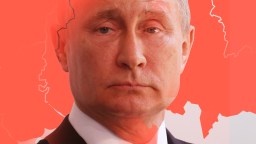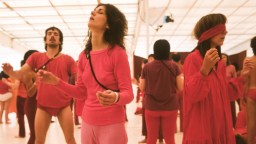Before we had the right to vote, we had the right to protest, says journalist Wesley Lowery. Protests have always been part of the U.S.’s political landscape, but over the last decade it feels as though there is an increase in dissatisfaction on the fronts of all causes – there is unrest, whether it’s a genuine increase or merely wider access to media and recording devices.
That pain and public anger scares a lot of people. People who are comfortable and for whom the status quo works just fine will grumble about a part of the city being shut down, or a freeway being closed by protestors. They start to crane their necks for an elected official who is going to handle it and return things to the way they were. Someone on a law and order platform, who makes a pledge to regain control of what’s happening and reverse this chaos. “Now there’s a false promise there,” says Lowery, “because the way they were, the way things were previously, was not any better.”
Protest is powerful, despite the eye rolls it almost always gains. Petitioning your government through collective amplification of voices is a healthy sign of democracy, and exactly what makes life in democratic nations for the most part more tolerable than the alternatives.
Lowery nods his head to Mayor Frank Jackson of Cleveland, who after a slate of national unrest – the decision to not charge Darren Wilson in Ferguson, and the office in the death of Eric Garner, then the shooting of 12-year-old Tamir Rice in Cleveland – protests were breaking out on a large scale in a surge of activism. People marched, shut down the freeway, and at that point many Cleveland residents complained. Mayor Jackson’s response? He gave a public address where he supported the protestors, protected their first amendment rights, and he was the first in recent years to really do that. The inconvenience of a shutdown freeway? That’s the cost of freedom, he said. To belittle people as they march is to belittle your own freedom, on a front you may one day be pushed to care about.
Lowery’s book is “They Can’t Kill Us All”: Ferguson, Baltimore, and a New Era in America’s Racial Justice Movement.
Wesley Lowery: You know I think that what’s interesting is that at times of tumult in the United States of America, the 50s and 60s, now. You see candidacies often to the center, right. But sometimes of either part who come out on this kind of law and order platform, this idea that we need to regain control of what’s happening or things will become chaos, right. And so the time we’re in, think of the last few years we have seen riots in various cities. We’ve seen angry protests, people in the streets, people upset. That scares a lot of people. People who aren’t comfortable with that. People whose lives were plenty happy and who are comfortable. They don’t like the idea that the freeway is shut down. They don’t like the idea that people are angry or yelling at the police officers. And what they desire is someone who’s going to come and tell them I’m going to handle this. I’m going to get things back to the way they were. Now there’s a false promise there because the way they were, the way things were previously was not any better. We just perhaps weren’t paying attention to it. There’s always unrest. There are always people who are in pain. There are always protests happening.
But we’ve been in a moment where we’ve had an acute awareness of that pain that is different than the moments previously. And so it’s not surprising, you know, Donald Trump becomes one of the first candidates since Nixon to so successfully wield this law and order type of platform. And so while that comforts some people, people on the other end of the spectrum are horrified by that, right. What might that mean? If you are the young black man or woman who’s been in the street protesting what might that mean for you if you’re one of these activists, if you are, you know, what does he – he spoke about potential nationwide stop and frisk which horrifies a lot of people. He’s talked about the crackdowns on immigrants and that horrifies a lot of people. And so there’s this understanding that we have this spectrum of security and liberty and that will people’s liberty be taken in order to provide a greater level of security. Because very often in those moments of fear when we are scared of what is going to happen and what is happening in our world those end up being the moments very often where we make historically some of the worst decisions we’ve made as it relates to respecting the liberty of some of our fellow Americans.
Protesting of itself is a foundational block of our democracy. That this is in fact before we had the right to vote we had the right to protest, right. That’s the first amendment. It is the first thing that the founders decided to enshrine in our constitution was this idea to petition your government. And not to petition your government by giving a bunch of money or by casting a ballot but rather by raising your voice you have the ability to petition your government. I think that, you know protests serve various purposes, right. Protests, people often, we often see protests and we often, especially those in the media look at them dismissively. What do they want? What are they going to get out of this? What’s the point? What are they really asking for? Why didn’t they go vote instead? And I think that that largely misses the point of protest and why people come into the streets. People protest when they feel as if the other avenues of democracy have not served them. When you are a young college student in Portland who voted for Hillary Clinton in a blue state and that doesn’t really matter or have any bearing on who wins or who does not win the election, right. I think it’s unsurprising that so many of the demonstration’s we’re seeing are in deep liberal cities within blue states.
People whose votes frankly didn’t really matter in terms of the outcome.
Someone who lives in New York. Someone who lives in LA or Oakland, right.
Chicago. The protest is a means of petitioning your government. Protest is a means of community, of taking an individual voice that by itself might be weak and compounding it with other voices that now collectively become strong. Would the mayor of any of these cities take the call of the individual? Maybe they would but maybe they would not. Would the governor? Would the president address one person standing on the street saying no, this is unacceptable. Probably not. Would he address 50? Would he address 100 or 100,000? Well perhaps they would, right. It’s a means of amplifying a message and it’s also a means of physical resistance of saying this thing that is in front of me whether this is a police shooting, whether this is an incoming presidential administration. There’s something that I object to and that I will not stand down for. And you will have to deal with me in the political pressure created by my presence. And so I think that protest is powerful because of the community it creates and then of that community can be birthed all types of activism and organization that then leads to long term change.
I got to Cleveland in December 2014 which was not long after the decision to not charge Darrin Wilson in Ferguson had been announced and the decision not to charge the officer in the death of Eric Gardner had been announced. And as protests were re-breaking out in all these cities there had also been another shooting. That if 12-year-old Tamir Rice in Cleveland. And so as protests were breaking out in New York and in St. Louis, Cleveland also had seen this surge of activism and Cleveland initially wasn’t very happy with this. The police handled the protests pretty well. They kind of guided the, they let them march, they let them shut down freeways. But the mayor began receiving all these complaints about it. Why was the freeway shut down? Why did you let them do this? He called a press conference to discuss the ongoing investigation into the shootings and discuss the protests. And he said, you know, protesting, the shutdown of the freeway, is the cost, it’s the inconvenience of freedom. That essentially he went to bat for the first amendment rights of these demonstrators. That’s something that we’ve now seen many more police departments do is follow that model. But Mayor Jackson, Frank Jackson in Cleveland was one of the first to really do this and I thought it sent quite a message about the role of protest and democracy.






